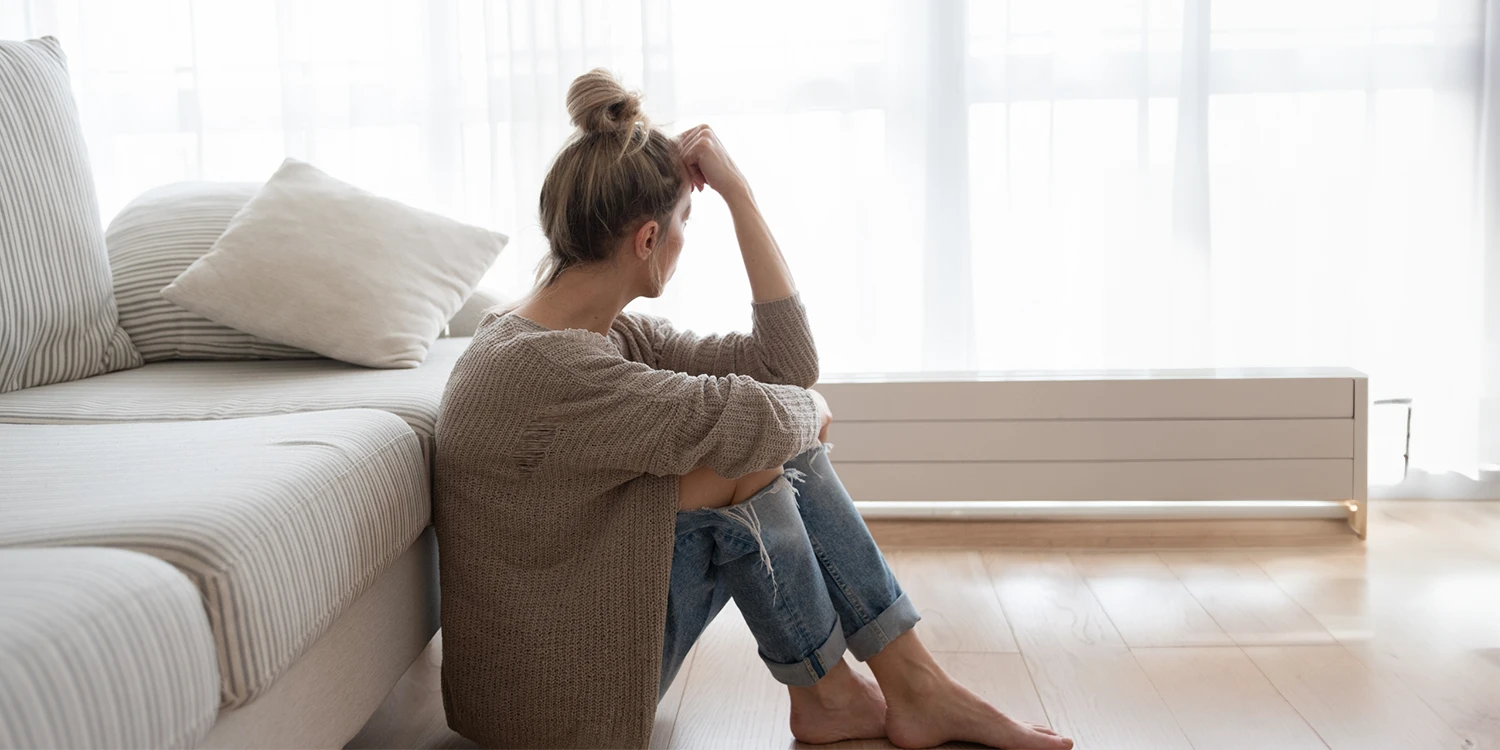9 Essential Tips for a Better Night’s Sleep
In our previous blog, “3 Causes of Sleep Problems + Tips for a Better Night’s Sleep,” we discussed three main causes that can disrupt your sleep. Haven’t read it yet? Check it out here!
In this follow-up, we’ll dive deeper into additional tips and methods to improve your sleep quality. Considering the impact of a good night’s sleep on your well-being, it’s essential to know effective sleep strategies. Below, we’ll explain 9 different sleep tips for you!
Holistic Sleep Tips for Better Rest
1. Optimize Your Bedroom Climate
For an optimal sleep environment, it’s essential to keep your bedroom cool, ideally between 16 and 18 degrees Celsius. Good ventilation also plays an important role as it ensures a fresh air supply, which increases oxygen levels in the room.
Lastly, a well-darkened room supports the production of the sleep hormone melatonin, helping you fall asleep faster and sleep more deeply.
2. Master Light Management for Better Sleep
Make sure to get enough natural light during the day, as it promotes the production of serotonin, the precursor to melatonin. Limit exposure to blue light in the evening and ensure darkness in the last hour before going to bed.
Bright light, especially the blue light from TVs, smartphones, laptops, and LED lamps, signals your body that it’s still daytime, preventing sufficient melatonin production.
3. Apply Feng Shui Principles to Your Bedroom
According to Feng Shui, the ancient Chinese art of harmonizing your living environment, your bedroom plays a crucial role in your sleep quality. A calm, secure space helps you relax deeply and promotes restorative sleep.
Colors and materials for better sleep
Choose natural materials such as wood, wool, and cotton, and use cool, calming colors like blue, green, or gray. Research shows that people sleep almost 8 hours on average in a blue bedroom and wake up happier.
On the other hand, avoid colors like purple, red, orange, and yellow, which promote alertness.
Create a clutter-free sleep space
According to Feng Shui, a tidy, minimalist space is also essential. Clutter or objects that suggest activity, such as full laundry baskets, stacks of books, or fitness equipment, can cause stress.
Products and crystals that can positively influence your bedroom include a Meru Pyramid, Agate, Selenite or Amethyst (you can find them on our webshop holistify.se)
4. Use Relaxation Techniques to Reduce Sleep Stress
Stress directly affects your sleep, especially falling asleep. A relaxed mind promotes deeper, restorative sleep. Want to reduce stress and clear your mind?
Make sure to get enough physical exercise (such as walking), but also meditation, yoga, and creative activities can help. Consider crystals known for their relaxing effects, such as amethyst, blue calcite, and rose quartz.
5. Boost Sleep Quality with Magnesium
Magnesium helps your body relax and is essential for a good night’s sleep, but unfortunately, many people are deficient in it. While supplements are often considered, magnesium can be hard to absorb through digestion.
An effective way to absorb magnesium quickly is through a foot bath with magnesium flakes or using magnesium lotion (which is much less irritating than magnesium oil).
How to use magnesium for sleep
Take a magnesium foot bath or apply lotion to your body about half an hour before bedtime. It’s nice to combine this foot bath with a meditation exercise, visualizing that all stress, thoughts, and worries flow away into the water.
Additionally, consider foods high in magnesium, such as pumpkin seeds, dark chocolate, chia seeds, sunflower seeds, cashews, almonds, quinoa, black beans, lentils, chickpeas, and oats.
6. Increase Tryptophan for Natural Sleep Hormones
Tryptophan is the precursor for the production of the sleep hormone melatonin. It is an essential amino acid that you must obtain through your diet because your body cannot produce it on its own.
Tryptophan is found in protein-rich foods such as eggs, cheese, and poultry. It’s also present in pumpkin seeds, chia seeds, cashews, sesame seeds, and sunflower seeds.
7. Natural Sleep Herbs for Deep Rest
Nature also offers tools for a good night’s sleep. For example, chamomile is known for its calming effects and helps soothe your mind.
Passionflower promotes relaxation by increasing GABA, a compound that calms the nervous system. Lemon balm has a refreshing scent and helps reduce stress and restlessness.
Lavender is deeply relaxing, both as tea and in aromatherapy. Lastly, hops is a surprisingly effective herb for sleep, especially in combination with other calming herbs.
8. Optimize Nutrition and Sleep Routine
Limit foods such as refined carbohydrates (white flour, cookies, candy, etc.) in the hours before bedtime. It’s also wise to avoid caffeine and alcohol, as they can impair deep sleep.
Maintaining a regular sleep schedule and avoiding excessive daytime naps can also help. Do you love to snooze in the morning? It’s better to skip it.
9. Create a Powerful Sleep Ritual
A clear sleep ritual can help you fall asleep and improve sleep quality. Try to develop a relaxing habit before bed, such as reading, a creative hobby, yoga, or meditation.
Writing before bed can also help by allowing you to put your thoughts and feelings on paper, preventing you from overthinking and staying awake.
Work on the Root Causes of Sleep Problems
Do you want to work more deeply on the root causes of your lack of sleep? You are very welcome to join a private or small-scale group retreat with me here in Sweden. Here you have the opportunity to practice real self-care on all levels and to build a stronger inner foundation.
My Services
Here you can find the links of my services:







